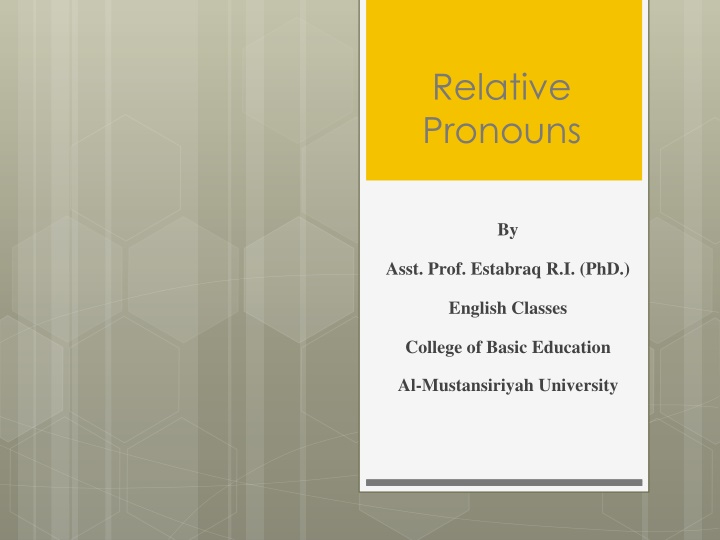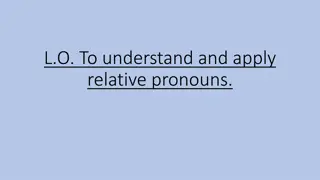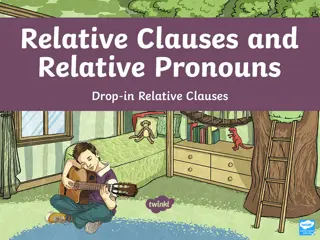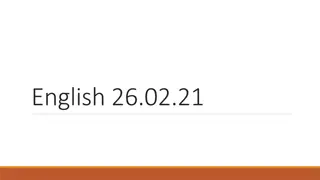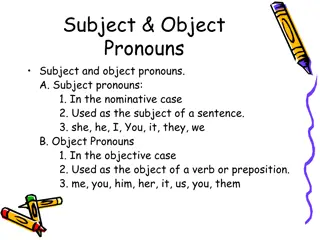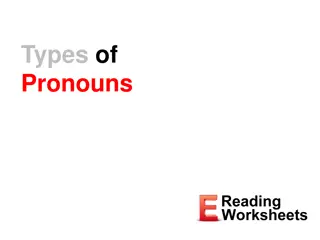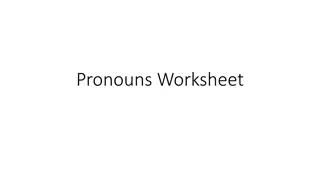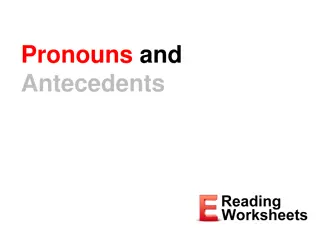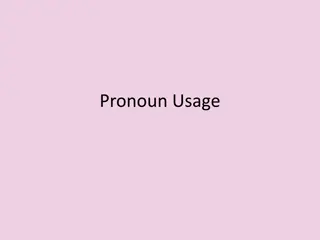Relative Pronouns
Explore the use of relative pronouns in English classes with Asst. Prof. Estabraq R.I. Learn how relative pronouns connect clauses and enhance your English language skills at the College of Basic Education, Al-Mustansiriyah University. Gain insights on how relative pronouns such as who, which, and that play a crucial role in forming complex sentences and adding clarity to your writing.
Download Presentation

Please find below an Image/Link to download the presentation.
The content on the website is provided AS IS for your information and personal use only. It may not be sold, licensed, or shared on other websites without obtaining consent from the author.If you encounter any issues during the download, it is possible that the publisher has removed the file from their server.
You are allowed to download the files provided on this website for personal or commercial use, subject to the condition that they are used lawfully. All files are the property of their respective owners.
The content on the website is provided AS IS for your information and personal use only. It may not be sold, licensed, or shared on other websites without obtaining consent from the author.
E N D
Presentation Transcript
Relative Pronouns By Asst. Prof. Estabraq R.I. (PhD.) English Classes College of Basic Education Al-Mustansiriyah University
Relative Pronouns There are only a few relative pronouns in the English language. The most common are which, that, whose, whoever, whomever, who, and whom. In some situations, the words what, when, and where can also function as relative pronouns. Because there are only a few of them, there are also just a few rules for using relative pronouns..
Relative clauses are typically introduced by relative pronouns, and that the relative pronoun can function as a possessive pronoun, an object, or a subject. When relative pronouns introduce restrictive relative clauses, no comma is used to separate the restrictive clause from the main clause. In American English, the relative pronoun whom is used rarely. You may notice this in conversations, but it is best to use the term when writing to ensure that your work is grammatically correct.
Examples The cyclist who won the race trained hard. The pants that I bought yesterday are already stained. The four team leaders, whoever the committee selects, will be at tomorrow s meeting. Spaghetti, which we eat at least twice a week, is one of my family s favorite meals Where did you buy the dress that you wore last week? The store on the corner, where we usually buy all of our art supplies, burned to the ground.
